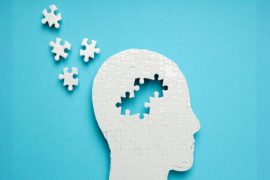Зміст
Chills, which is a feeling of coldness and shivering in muscles, is a condition that we associate with the flu and other respiratory infections. Unfortunately, it happens that this is an underestimated symptom of much more serious diseases. This is how diabetes, kidney and cardiovascular disease, and even cancer and mental disorders manifest themselves. What do chills show, and when should they worry us? How do lifestyle and other factors affect the onset of chills?
Why do we feel chills?
Chills are body tremors caused by the uncontrolled contraction of small muscles. Contrary to appearance, this desirable phenomenon is one of the defense mechanisms of our body. Its purpose is thermoregulation and a decrease or increase in body temperature. This is why chills accompany a high fever (usually caused by a bacterial, viral, or parasitic infection), but also when the body is cold. However, you should worry about recurring chills that are not accompanied by an increase in body temperature. They can be a sign of serious illness.
Chills and diabetes
Chills are a characteristic symptom of hypoglycemia, which is too low a blood sugar level. This phenomenon most often occurs in diabetics taking high doses of insulin. But it also happens in healthy people. Hypoglycemia is very dangerous, the inability to respond quickly (glucose injection, eating something sweet) can lead to coma and even death. Other symptoms of too low blood sugar include irritability, excessive sweating, and confusion.
Chills and kidney disease

Chills are also relatively common in people who are struggling with cystitis or acute pyelonephritis, which is the result of not curing the first ailment. It should never be underestimated, as it can lead to the development of a chronic disease that gradually leads to kidney failure. Other symptoms include abdominal pain, urge to urinate, and burning sensation when urinating.
Chills and cardiovascular disease
Low blood pressure and problems with proper circulation are manifested, including chills. Other symptoms include lethargy and drowsiness, as well as feeling cold, especially in the arms and legs. Some people also experience shortness of breath and body swelling. Poor circulation can be a sign of, among other things, heart failure, so see your doctor as soon as possible.
Chills and menopause
The hormonal storm that occurs in women during menopause is often associated with alternating chills and hot flashes. This is normal, but very burdensome, so it is worth visiting an endocrinologist who will check the level of hormones and rule out possible deviations.
Chills and mental disorders
Chills, as well as severe anxiety and fear, headaches or problems concentrating are characteristic symptoms of neuroses, depression and other mental disorders. In this case, the only solution to the problem is psychological therapy, which is sometimes combined with pharmacological agents (hypnotics, sedatives, mood enhancers, etc.).
Other causes of chills

It is worth knowing that chills can also be the result of taking certain medications (in which case it is a symptom of an allergy to a component of this medication), alcohol abuse, insomnia, physical or mental exhaustion. It also happens that chills are a symptom of cancer.








